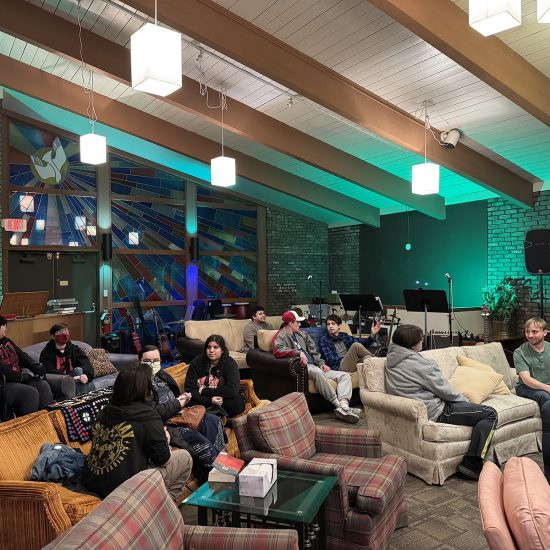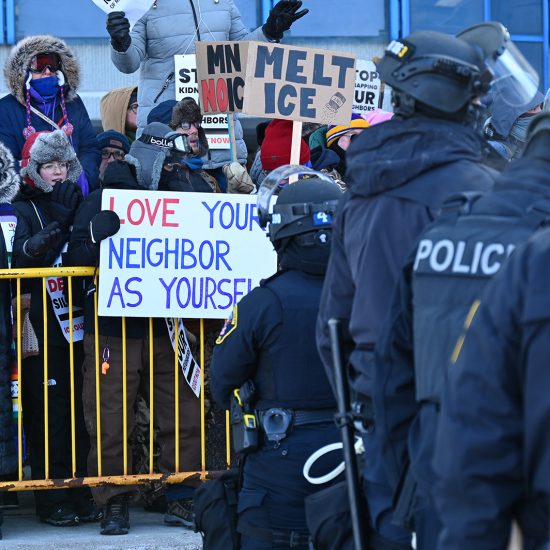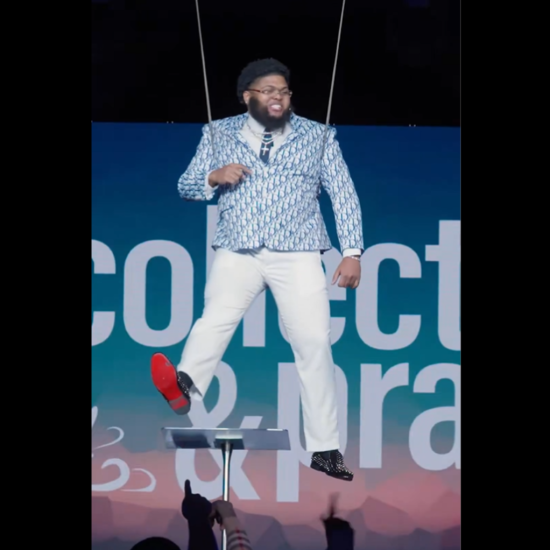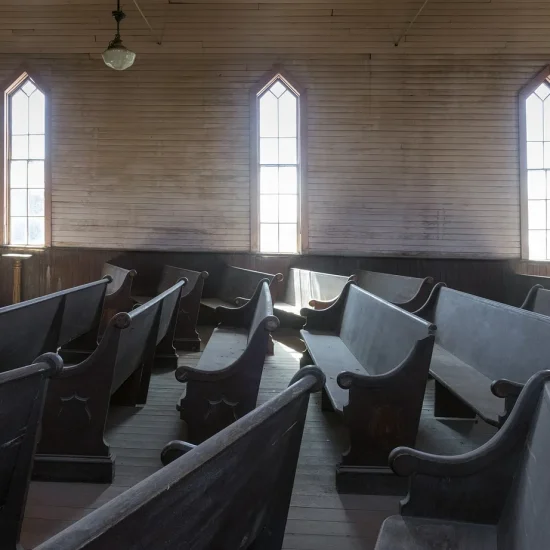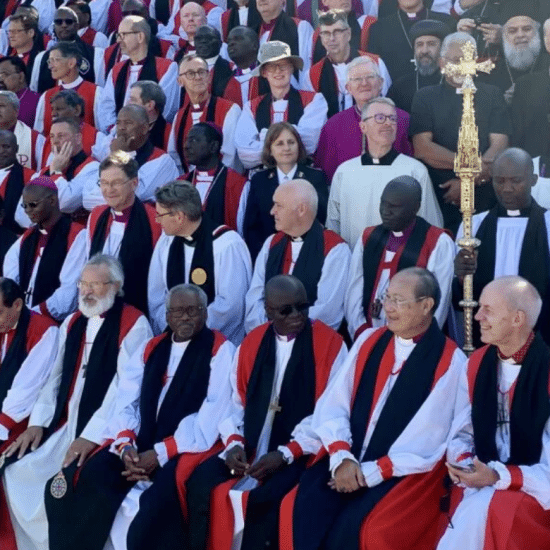
Pastors have broad job descriptions. They are preachers, teachers, counselors, administrators, organizers, and so much more. Many church members rarely interact with their pastors outside of Sunday morning worship, making it difficult to understand the dynamics of this role. “Behind the Pulpit” is a regular feature intended to pull back the curtain on the minister’s life and introduce our readers to how a diverse set of leaders go about shepherding their flocks.

Vicki Flippin
This installment features an interview conducted by email with Vicki Flippin, who pastors First and Summerfield United Methodist Church in New Haven, Connecticut. Her responses have been lightly edited for clarity.
What didn’t you learn in seminary that you needed to know for church leadership?
Of course, this year, I am thinking about how I did not learn in seminary about leading a church through a pandemic! When I graduated from seminary in 2008, no class taught us how to do a funeral on Zoom. I turned in no papers on how to care for one’s self, one’s family, and one’s church through more than a year of fear, anxiety, isolation, and political upheaval. We had no ethical case studies on how to balance constantly changing public health information (and all the disinformation) with incredibly varied risk tolerance among individuals. This experience has been wild.
But perhaps the broader lesson not taught in seminary is that church leaders, more than ever, need to learn adaptive leadership and flexibility. While every year may not be quite as volatile as this particular one, our world and our communities are constantly changing. Technology and worldviews are on the move. The role of the church in society is evolving. And crises of many varieties come up now and again in every community. Even without a global pandemic, we always need to find and ground ourselves in the core of the Gospel and to let go of the traditions and cultural baggage that does not serve that core in this moment.
How has your personal understanding of God changed by serving the local church?
I have come to know, much more deeply, God’s grace by serving in professional ministry. For better or for worse, pastors are symbols of the faith. When we wear our collars or stand in front of a pulpit, when we show up in peoples’ homes and even post on social media, people link us to God. That is a lot of pressure, because we are just regular people! I can name so many lay people who are far more saintly than myself. But, because I am so closely associated with the church, when I mess up or do not live up to my understanding of holiness I can enter into a mighty strong shame spiral.
I used to serve a church that invited people to the altar for prayer during the postlude. I was always the first one kneeling. In those moments after leading worship, I would let the Sunday afternoon thoughts rise up: “Why did I say that? Was this person harmed by my words? Why didn’t I acknowledge those things? I should have spent more time preparing. I’m no good at this.” And, as I knelt before the altar, I would viscerally feel God’s grace shower down on me, as if to say: “Even if you are the worst (which you are not), you are worthy of love and joy. And this work is not yours. It is mine. I will fill in the cracks.”
How have your personal religious/devotional practices been shaped and altered by being the shepherd of a flock?
I love the devotional life of the preacher. I know professional ministry is not a sustainable spiritual practice (I hope to retire one day!), but it is awesome to be held accountable each week for saying something coherent about how scripture, the world, the lives of my parishioners, and the Spirit are all interacting.
Each week, I choose a Bible text from the Revised Common Lectionary or Narrative Lectionary, read it intently, listen to podcasts, sing songs, and write poetry about it as I prepare our worship bulletin, then engage in Bible studies about it first with our church members and then with four local friends/clergywomen. Then I pray and pray and pray and write and write and write. Usually, what comes out is a sermon that I needed to hear but that I also hope blesses someone else. It is a privilege to be able to call this work!
What does justice look like in your local context? How about love? How do you lead people towards both?
In recent years, the major justice foci in our church have been immigration and LGBTQIA justice. We are a sanctuary church and have physically housed three undocumented neighbors at risk of deportation. We have also been a part of our denomination’s movement for LGBTQIA affirmation since the 1990’s. Although we are obviously a “progressive” leaning church, our justice work is not just a rubber stamp on the leanings of a particular political party. It comes out of our church’s love of people. Decades ago our community had several young student leaders who came out as gay to people in the congregation. These leaders were beloved. Their courage prompted church members and leadership to explore questions of sexuality and Christianity. The church’s deep love for these young people led this church to join a movement that, for decades, has struggled for full inclusion and affirmation of our LGBTQIA members. We advocate for people we love.
Likewise, several years ago, local immigration advocates in our community asked congregations to offer their spaces as sanctuary for undocumented neighbors because Immigration and Customs Enforcement officers have a policy not to enter houses of worship to detain people. In its history, this church has had many immigrant pastors, including myself. This church said “yes” immediately to this request. Since then, we have known and loved several families through the crisis of threatened deportations. These are parents of U.S. citizen children, who have lived and worked and paid taxes in our communities for many years. Our kids have played with their kids. We have prayed with them and cried with them. We have felt their fear and witnessed their harassment by government entities. Our hearts have been broken open. Again, we advocate for people we love.
My experiences at this church have put flesh on the famous quote by Dr. Cornel West: “Justice is what love looks like in public.”
What is the funniest or oddest thing that has ever happened to you in ministry (that you can share without breaking confidentiality)?
What comes to mind is the chaotic day when, as a new working mom, I was struggling to get myself and my family to church. In our rush, our baby ended up out the door without shoes. This was fine because we were not expecting an infant to have to walk anywhere. The senior pastor was away, so I was managing worship by myself, as well as leading events before and after the service. This meant that I did not have a chance to breastfeed until a break in the middle of the service. But that break was short-lived, so I ended up breastfeeding with my baby’s bare feet sticking out from under the nursing cover as I stood and spoke the Words of Assurance (Forgiveness and Grace) after the Prayer of Confession!
I was incredibly embarrassed. Afterward, women in the congregation told me the experience was affirming for them! I guess it was an image of God’s love and grace that clergy without breasts could not pull off!
We’re coming out of a pandemic, how has that been for you and your church?
Every one of us has stories about how this pandemic has been uniquely stressful. I am in the sandwich generation and started the pandemic as parent to a kindergartner doing online school and as child to a parent completely isolated in a nursing home, all while I worked to create a whole new way of being church with my parishioners. All that to say, it’s a lot better now.
I have to name that one of the blessings for our church was the way in which our young adults stepped into leadership. With our community moving online, these members – who were much more comfortable with technology than our older leadership – led us, trained us, saved Christmas with a Zoom Christmas pageant, and generally found a way for the church to thrive in this science fictional future we are living through!

